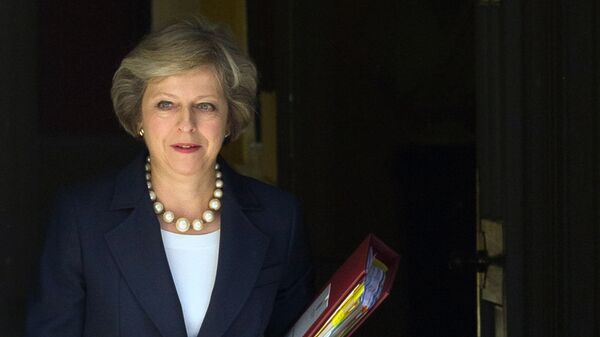Sputnik: UK Prime Minister Theresa May is expected to announce she will leave office on Friday in the wake of disagreements with lawmakers over her Brexit plan. In your view, could Theresa May's resignation help solve the Brexit crisis?
Franco Rizzuto: Unlikely given the numbers and party fragmentation in the House of Commons. The inability so far of MPs to support the divorce agreement is linked to the unanswered fundamental question of the future relationship because of those divisions. In short, her departure does not heal the divisions between supporters of hard Brexit, soft Brexit, or no Brexit. Only a general election might clarify matters on that score; but of course, for the Conservative Party in particular, the rise of the Brexit Party complicates matters. So the real problem remains that of our future relationship with the EU. The divorce agreement is simply that — a divorce agreement; what is unsettled is what happens after — departure will not solve that problem.
Sputnik: What are your predictions about the date of May's resignation?
Franco Rizzuto: She will announce her departure date tomorrow and if she doesn't, she will be forced to resign because the 1922 Committee will vote to change the rules, and there will be a no-confidence vote against her. My view is that she will probably end up going around about early June, or, perhaps, until a new leader is elected; but my view is that she'll be gone and there will be a caretaker prime minister. What we need to bear in mind is that, of course, today the government has pulled the publication of the withdrawal act bill, which is significant. In effect, she is gone; only the legal reality, if you like, needs to confirm that fact.
READ MORE: So Bad It's Funny: Social Media Reacts to Tory Chaos as UK Voters Head to Polls
Sputnik: In your opinion, who is likely to replace her?
Franco Rizzuto: It's difficult to say, but I think it will be a proponent of hard Brexit, because that's the majority on the Conservative Party, Johnson, Leadsom, Gove, Raab, possibly Hunt. The numbers suggest it will be one from this list. But it won't be a one-nation Tory. Remember, in Conservative elections, the favourite rarely wins. I think Johnson, who is put forward as the great favourite, needs to get past his parliamentary colleagues first; and I have a feeling that that might be very difficult for him. I wouldn't be surprised if it's somebody like Raab or Leadsom.
Sputnik: In your view, what are the main issues that had an impact on Theresa May's decision?
Franco Rizzuto: A majority of her MPs and Cabinet have openly voiced their desire for her to resign. Why? Because her strategy of zig-zag between hard and soft, her discussions with Labour — that's failed. The WAB, as they call it, was the last straw for many in her party. Agreement with Labour on customs union, a second referendum, and some of the things are in that bill, a bill that's never been, for now, were just too much for them. The last straw, probably, was the announcement she made on the possibility of a second referendum concerning the deal. So, really she's been abandoned by virtually everybody in her party, because her strategy has failed.
Sputnik: Many of May's Conservatives have spoken out against the points of agreement that she had already struck with the EU. How likely is it that the British Parliament will approve any deal?
Franco Rizzuto: There is probably a majority for a deal; there's no doubt because there have been a couple of votes. But a deal that includes a customs union and regulatory alignment to avoid the Northern Irish backstop — that means that we would have to renegotiate the divorce agreement, and Brussels just said no. But if political circumstances have changed, I think that would be possible. But, of course, whether that could be done before 31 October is highly unlikely. Playing with the political declaration amounts to nothing; if you have a hard Brexit government or the prime minister, they can simply abandon the political declaration and simply change it. So, a government or a prime minister who doesn't support customs union is not going to necessarily be instructed by Parliament. The real question is how Parliament can assert its version of the deal on a government that doesn't want to go down that route. There's a lack of leadership, there's a disconnect between the government and the majority of the Parliament that is a cross-parties.
READ MORE: UK Judge To Decide If Boris Johnson Can Be Prosecuted Over £350 Mln Brexit ‘Lie'
Sputnik: If the deal is approved, what's the likelihood of a second vote?
Franco Rizzuto: I think now it's very likely, if a deal was approved. The number of parliamentarians who feel that they need to go down this route of a second confirmatory vote is now growing. We know that there's an overwhelming majority in the Labour Party, and I think there's an increasing number of Conservatives, let alone the Scottish Nationals and so on. And it's actually one way of getting people to legitimate Parliament's decisions or not. So, I don't think that should be discounted, even if some party leaders don't want it. So, the will of Parliament appears to be being expressed; so it's not unlikely.

